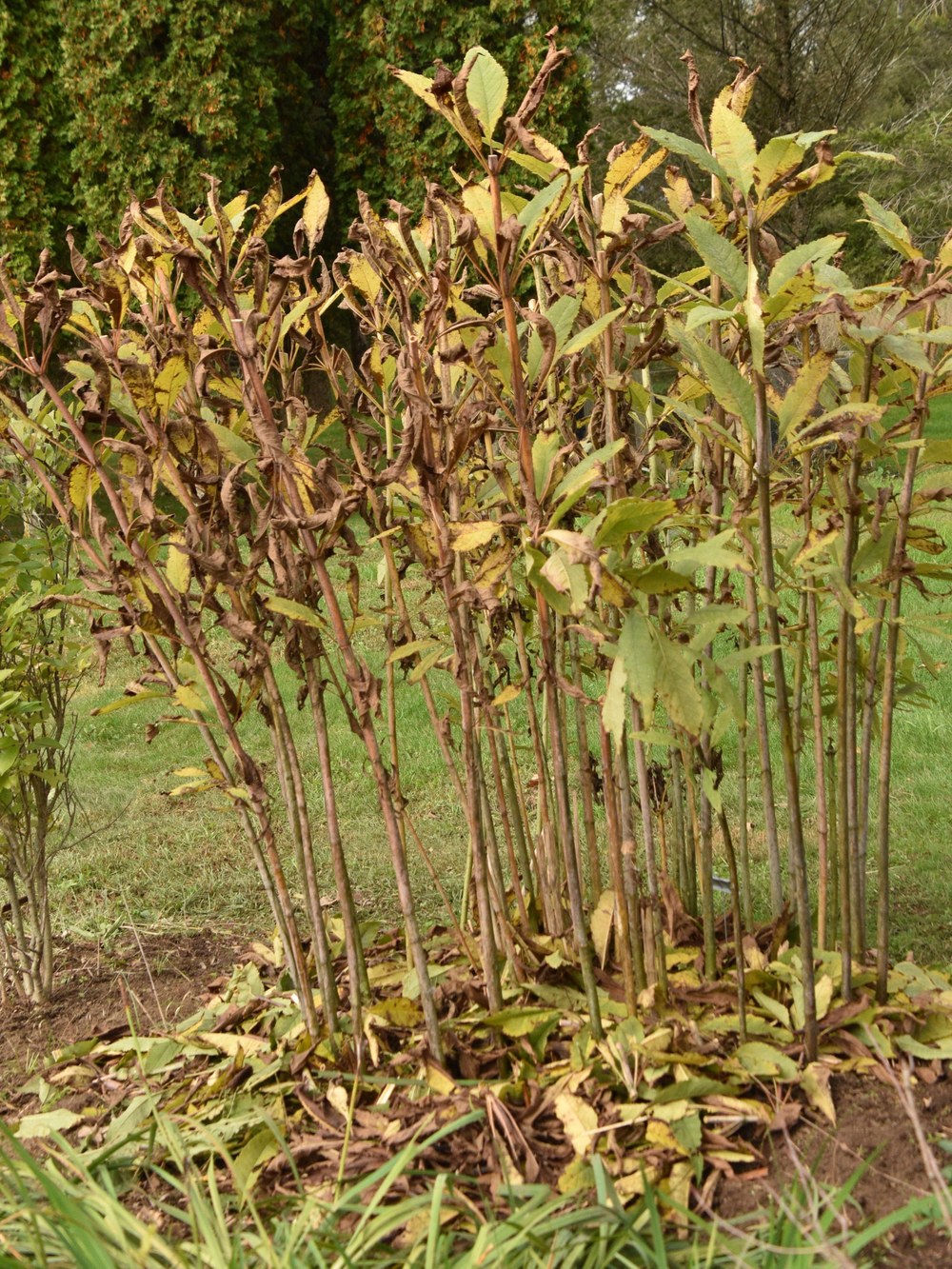Posted: October 19, 2021
The Penn State Extension Master Gardeners of Monroe County continue Project NatureScape which purpose is to provide education to the community about the ecological importance of wildlife habitat. The garden, via self-guided tours, virtual educational postings and videos teaches visitors how and why home gardeners, through their landscape design choices and maintenance practices are able to significantly contribute to healthy ecosystems by protecting biodiversity, water and air quality.

Joe Pye Weed. Four foot stalks were left standing to serve as overwintering wildlife habitat. Six inch pieces of stem and leaves were left as mulch.
Many thanks to the seven volunteers who gathered on a chilly Sunday morning and participated in Project NatureScape's (PNS) final scheduled maintenance day for the 2020-2021 garden season.
A large section of one of the beds had become a severely overgrown jumble of weeds and plants whose seeds had been wind-blown or brought into the garden by animal activity. This winter, PNS members will discuss plants to be installed in this garden bed next season. The plants, which will include shrubs, herbaceous perennials, understory trees and ground cover will be selected to demonstrate their wildlife habitat and host plant value.
Practicing Ecological Horticulture
In an effort to minimize landfill-destined garden debris generated by cutting down the stalks and stems of perennial plants each spring, Project NatureScape volunteers have begun practicing a "chop and drop" approach to mulching.
We know that leaving plants standing until spring helps to provide winter habitat and food for wildlife. But some plants such as New York ironweed, despite having wildlife value, can be vigorous self-seeders. This enables them to easily spread to other garden areas and crowd out other beneficial plants. To reduce spreading, volunteers removed the seed heads from the ironweed and several other plants but left four-foot stalks to serve as wildlife habitat for the winter. The seeds were placed in plastic bags but the cut stem parts and leaves were further cut into 6" pieces and dropped on the ground around the base of the plants. For now, the cut stems and leaves will serve as mulch and as the mulch decays, organic matter will be returned to the soil. Next spring, the "cut and drop" mulching practice will be applied to all of the PNS garden beds.
By taking advantage of this free and sustainable form of green mulch, PNS volunteers hope to reduce time and maintenance costs and better serve our community through increased awareness and education by practicing and demonstrating ecological horticulture practices.

